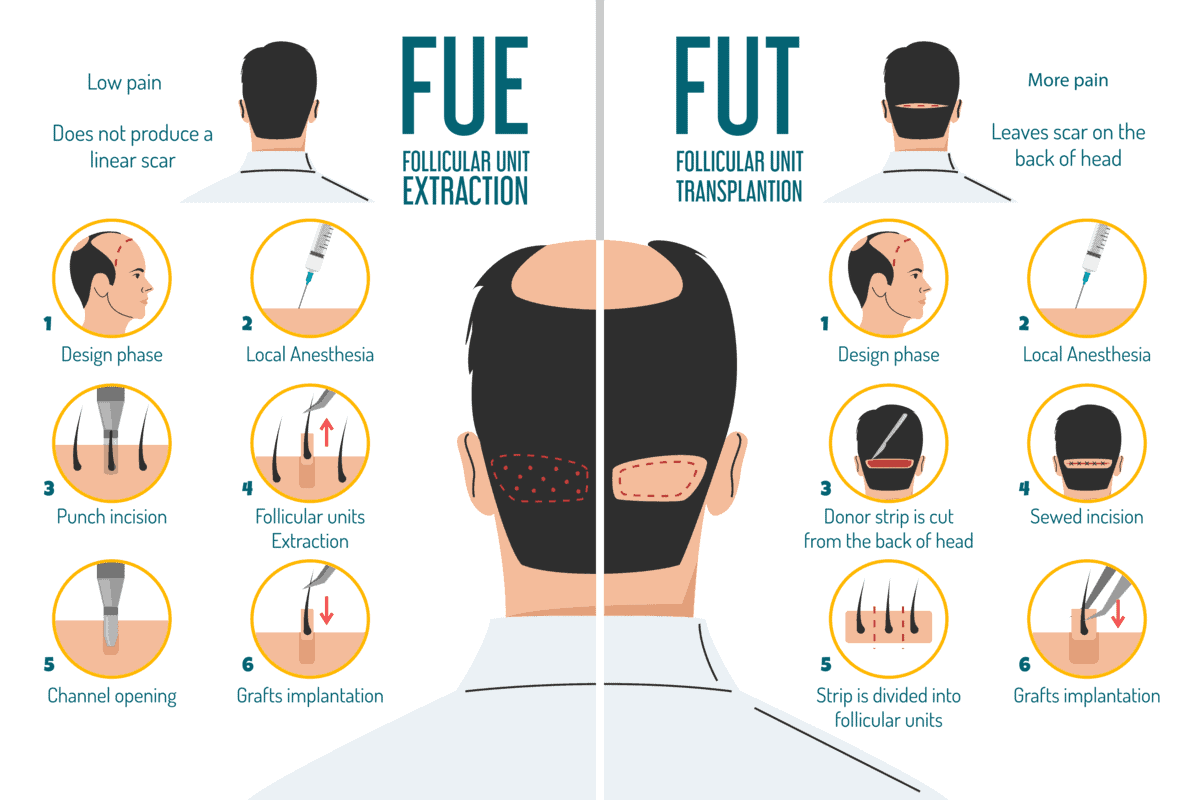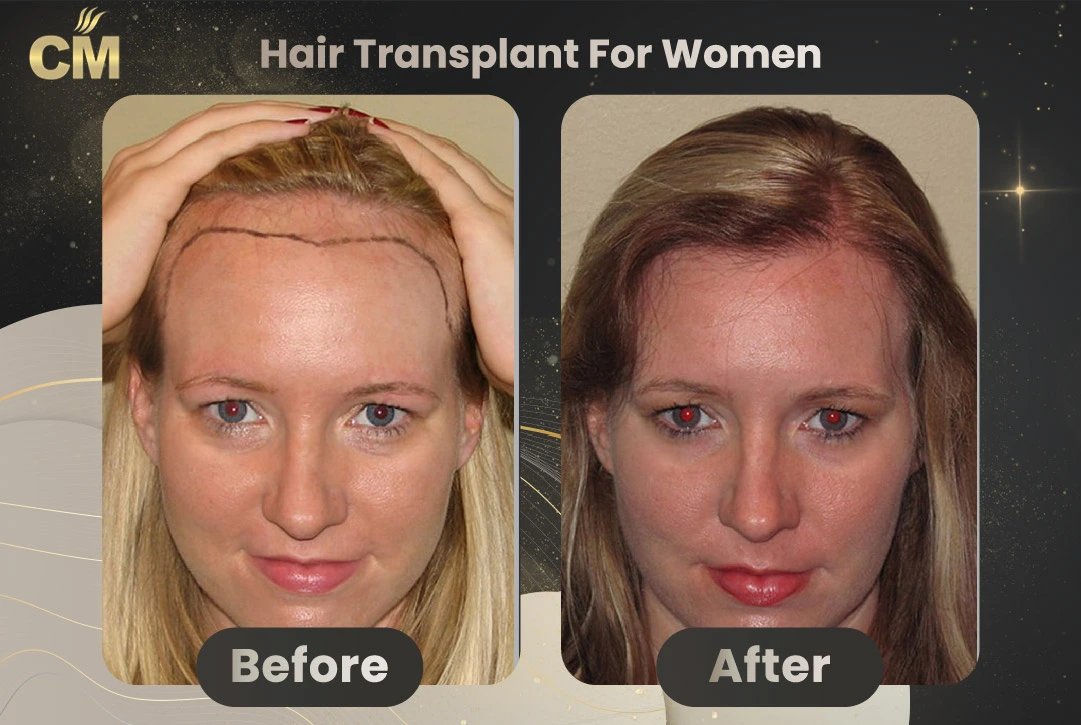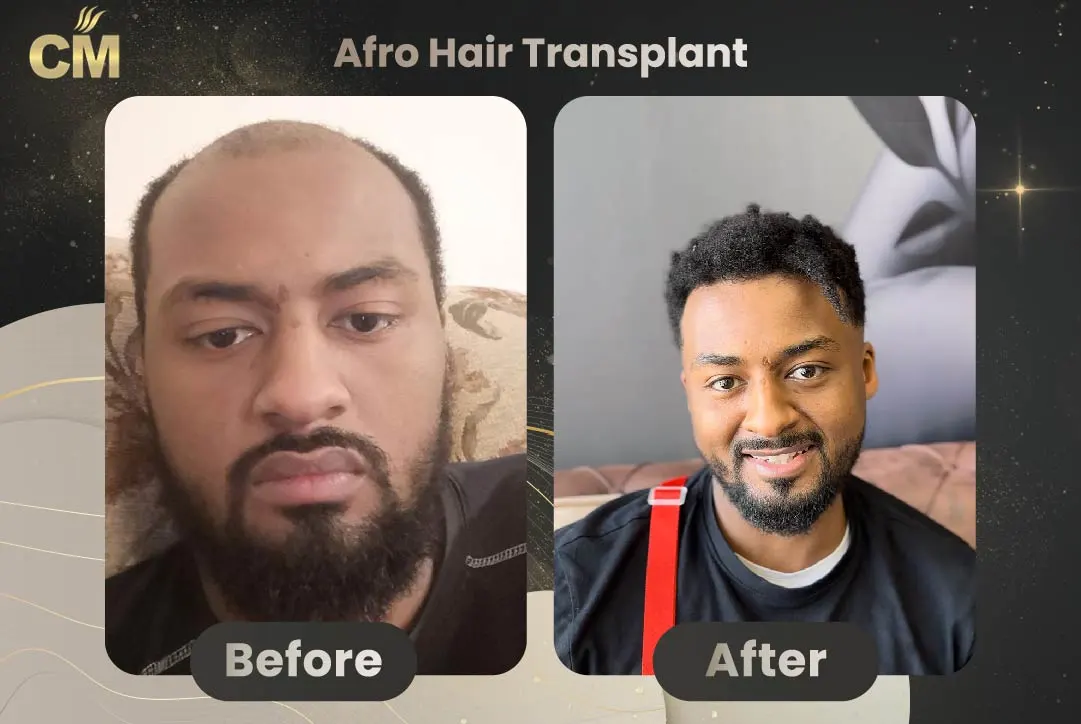FUE Hair Transplant in Turkey
FUE (Follicular Unit Extraction) hair transplant in Turkey has become one of the most trusted solutions for people experiencing hair loss. This method uses a minimally invasive approach that avoids visible linear scars and restores natural-looking results. Many people choose Turkey because skilled surgeons and advanced techniques make it a global leader in FUE procedures. At ClinMedica, our specialists perform FUE hair transplants with precision and care. We focus on creating natural outcomes while ensuring comfort and safety for every patient. This guide explains how the procedure works, its benefits, recovery expectations, and the cost of undergoing FUE in Turkey.
Understanding FUE Hair Transplant
Follicular Unit Extraction (FUE) transformed the field of hair restoration. Unlike older methods such as FUT (Follicular Unit Transplantation), which required removing a strip of scalp and left a noticeable scar, FUE extracts individual follicles directly from the donor area. This innovation makes the procedure virtually scar-free and much less invasive.
At ClinMedica, we prioritize aesthetic outcomes and patient comfort. Our team relies exclusively on the FUE technique, meticulously extracting and implanting follicles to achieve a seamless and natural-looking result.
How FUE Hair Transplant Works
The FUE process requires careful preparation and skilled execution. Our specialists follow a series of steps designed to maximize follicle survival and create natural density.
Donor Area Preparation
The surgeon selects the donor area, usually at the back of the head. In some cases, they may also take grafts from behind the ears or under the chin. At ClinMedica, doctors map the donor region into 1 cm² squares to prevent random extraction and protect the donor supply. This method ensures even harvesting and long-term density.
Local Anesthesia
We apply local anesthesia using a needleless comfort-in system. This modern approach delivers anesthetic under the skin without needles, allowing patients to stay relaxed and pain-free throughout the procedure.
Extraction of Follicles
After numbing, the surgeon applies serum around the donor area to gently lift the skin above the veins and arteries. This step makes it easier and safer to use the micro-motor device. The device extracts single, double, triple, quadruple, and quintuple follicles with precision.
Our team examines the grafts under a microscope and sorts them individually. For example, we use single-hair follicles for the front hairline and multiple-hair follicles to build density.
Preservation of Follicles
We preserve the extracted follicles in HypoThermosol, a specialized solution. Unlike saline, which causes grafts to die within a few hours, HypoThermosol nourishes and protects them. It prevents dehydration, reduces oxidative stress, and maintains follicle health until implantation. Although HypoThermosol costs more, it significantly improves survival rates and final results.
Implantation
The surgeon loads the follicles into fine instruments and implants them directly into the thinning or balding areas. By controlling the angle, depth, and direction of each graft, our team designs a natural hairline that grows in harmony with the patient’s existing hair.
Benefits of FUE Hair Transplant
Patients choose FUE for several clear advantages:
-
Natural results: The transplanted hair grows naturally and blends with existing hair.
-
Scar-free outcome: FUE leaves only tiny dot marks that fade quickly, unlike FUT’s visible linear scar.
-
Minimal discomfort: Local anesthesia makes the procedure painless.
-
Quick recovery: Most patients return to daily activities within a few days.
-
Customized design: Surgeons adjust density and placement to match individual goals.
FUE Hair Transplant with Local Anesthesia
Comfort remains central to our approach. At ClinMedica, we perform all FUE surgeries under local anesthesia with the comfort-in system. Patients remain awake during the operation but feel no pain. Our medical team monitors them closely, providing reassurance and support at every stage.

What to Expect Before Your FUE Hair Transplant
Preparation improves the safety and success of the procedure. Before surgery, we provide detailed instructions, which include:
-
Stop smoking and alcohol a few days before the operation.
-
Inform your doctor about all medications you currently take.
-
Complete a pre-operative blood test.
By following these steps, patients create the right conditions for a smooth procedure and quick recovery.
FUE vs. FUT- Why Choose FUE?
FUT once served as the standard in hair restoration, but most patients now prefer FUE. Here’s why:
-
No linear scar: FUT leaves a visible scar, while FUE creates only small, nearly invisible marks.
-
Less invasive: FUE avoids cutting or removing a strip of scalp, so patients heal faster and feel less discomfort.
-
More natural-looking results: Because surgeons place follicles individually, they can design realistic hairlines and control density more effectively.
FUE Hair Transplant Cost in Turkey
The cost of an FUE hair transplant in Turkey depends on the number of grafts required, the clinic’s reputation, and the surgeon’s expertise. Despite these variables, Turkey remains one of the most affordable countries for advanced hair restoration.
At ClinMedica, we design personalized treatment plans to fit each patient’s needs and budget. Our competitive packages often include accommodation, airport transfers, medication, and aftercare. Patients benefit from expert care and world-class facilities while paying far less than they would in many Western countries.
If you want a safe, effective, and natural-looking solution for hair loss, an FUE hair transplant in Turkey offers an excellent choice. The technique avoids large scars, ensures quick recovery, and delivers long-lasting results.
At ClinMedica, our surgeons use the latest technology and a patient-first approach to provide outstanding outcomes. Schedule a consultation today and discover how an FUE procedure in Turkey can help restore not only your hair but also your confidence.



